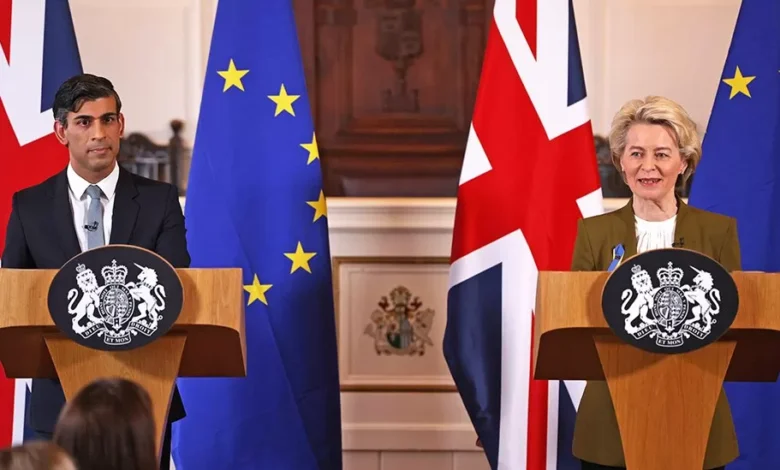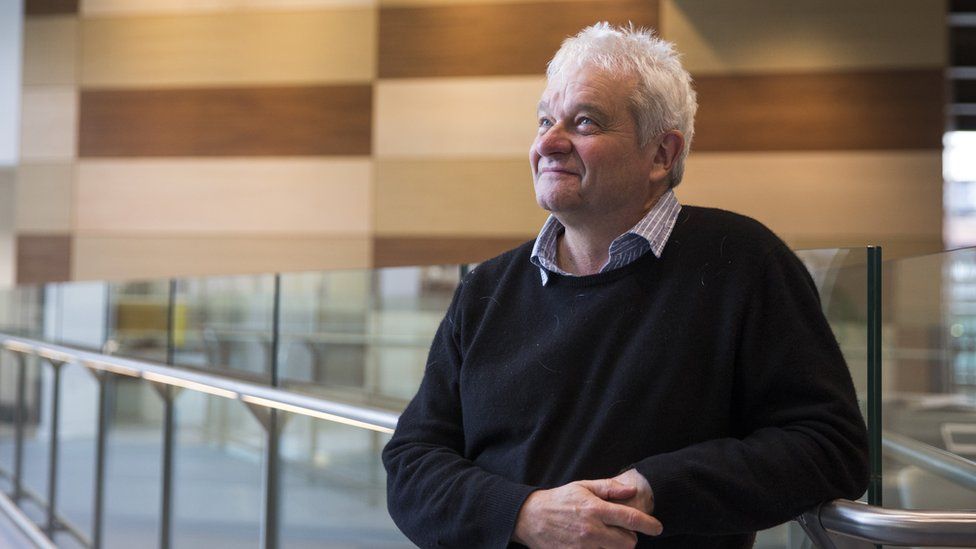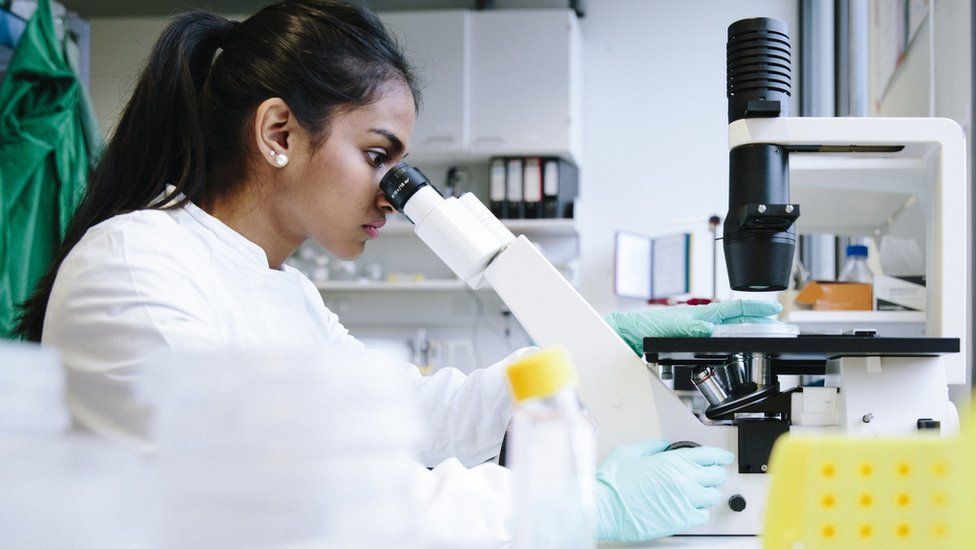Horizon research deal with EU awaits Sunak’s signature

A deal for the UK’s association with the EU’s €100bn (£85bn) Horizon research and innovation programme has been negotiated.
The proposed arrangement is awaiting approval from the prime minister.
If Rishi Sunak agrees, an announcement is expected on Tuesday after his talks with the European Commission chief Ursula von der Leyen.
Downing Street said on Thursday morning that a “deal has not been agreed”.
But highly-placed sources have now said that a sticking point over how much research funding the UK is expected to receive has been resolved and that two separate options for associate membership await the prime minister’s consideration.
Mr Sunak has been said to be enthusiastic about an alternative, UK-led, international collaborative research programme, drawn up by the Science Minister, George Freeman. But the UK research community has constantly and unanimously argued for membership of the European Horizon programme.
If Mr Sunak rejects the options on his desk, the anger from the scientific establishment will be ”unimaginable”, according to a senior scientific leader.
Should events go as expected, the deal will come as a huge relief to the scientific community. Many of the UK’s leading researchers have been left in limbo over the future of their world-leading research projects and in some cases their own jobs and those of their teams.

Associate membership had been agreed as part of the withdrawal agreement when the UK formally left the EU at the end of January 2020. But the arrangement was not activated because of a disagreement over the Northern Ireland protocol. This was resolved in February of this year and it had been hoped that a deal for Horizon would swiftly follow.
The EU waived the UK’s joining fee for the time it had not been a member, but it stuck to the arrangement agreed with former Prime Minister Boris Johnson’s government about the funding the UK would be expected to receive.
The government had agreed that if UK researchers received less than 12% of what the UK put in, Britain could terminate the arrangement. The figure for other associate members of Horizon is 8%, but it was thought to be a price worth paying for continuing to be part of the programme by the government at the time.
Talks since the Windsor agreement have focussed largely on renegotiating this figure to be more in line with that of other associate members. It is understood that two formulae have now been agreed between the UK and EU, which await the prime minister’s signature.
The stand-off has bemused UK researchers because pre-Brexit the UK received around £500m more than the £1.5bn a year it put in. For Horizon the government has agreed to pay approximately £2bn a year and given the quality of British science, the research community believes it would get at least the same amount back. Many feel that months have been lost haggling over a hypothetical point.
News that a draft agreement had been reached was reported on Wednesday afternoon by Politico, but was greeted by a terse statement from the Foreign, Commonwealth and Development Office.
“Talks are ongoing and, therefore, we have not yet agreed a deal.”

On Thursday morning Rishi Sunak’s official spokesman said the Prime Minister was keen to seek “value for money for taxpayers” if the UK is to rejoin the scheme, with “constructive” discussions still going on.
”I think overall we want to make sure that any deal, whether it is Horizon or the UK alternative Pioneer, is the one that produces the best value for UK science and research and also for taxpayers. That is what the Prime Minister will consider at the appropriate time.”
James Wilsdon, a professor of science policy at University College London, said what while this was “wonderful news” the uncertainty over the past three years had “blighted” UK-EU scientific collaboration.
“In haggling over the budget, the UK was in danger of being penny wise but pound foolish — emphasising short-term costs over the huge long-term gains that will flow from UK participation.
“Hopefully, a compromise has now been reached and the research community can move forward with the clarity and commitment that it has been crying out for.”
Professor Lord Krebs, a long-serving and respected scientific adviser to the government from the University of Oxford, said: “Delays over two years have caused serious and lasting damage to UK R&D.”
Nobel prize winner Sir Paul Nurse said the prime minister should finalise the deal “without further delay”, a view echoed by Prof Sarah Main, executive director of Campaign for Science and Engineering.
“I urge the prime minister and president of the European Commission to secure this agreement, enabling researchers to get on with the vital role they play in improving people’s lives and livelihoods,” she said.
Vivienne Stern, chief executive of Universities UK, also urged the prime minister to finalise the deal, saying there were a lot of people in Europe “with their fingers and toes crossed that it gets across the line”.
She said that among the benefits of joining the programme were greater opportunities for research collaboration – as well as access to larger grants for UK universities.
The UK is also seeking to rejoin the Copernicus Earth observation programme.










